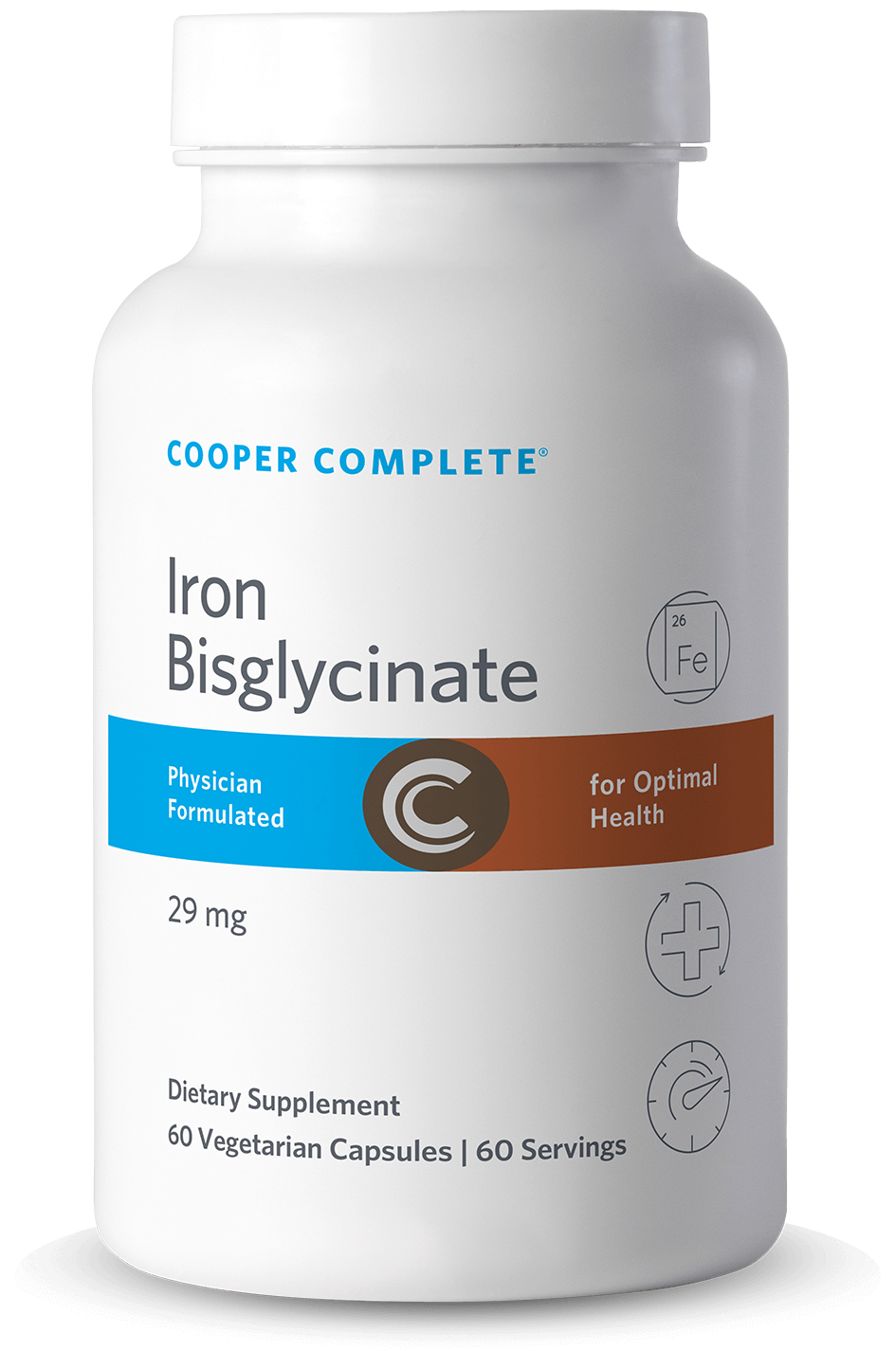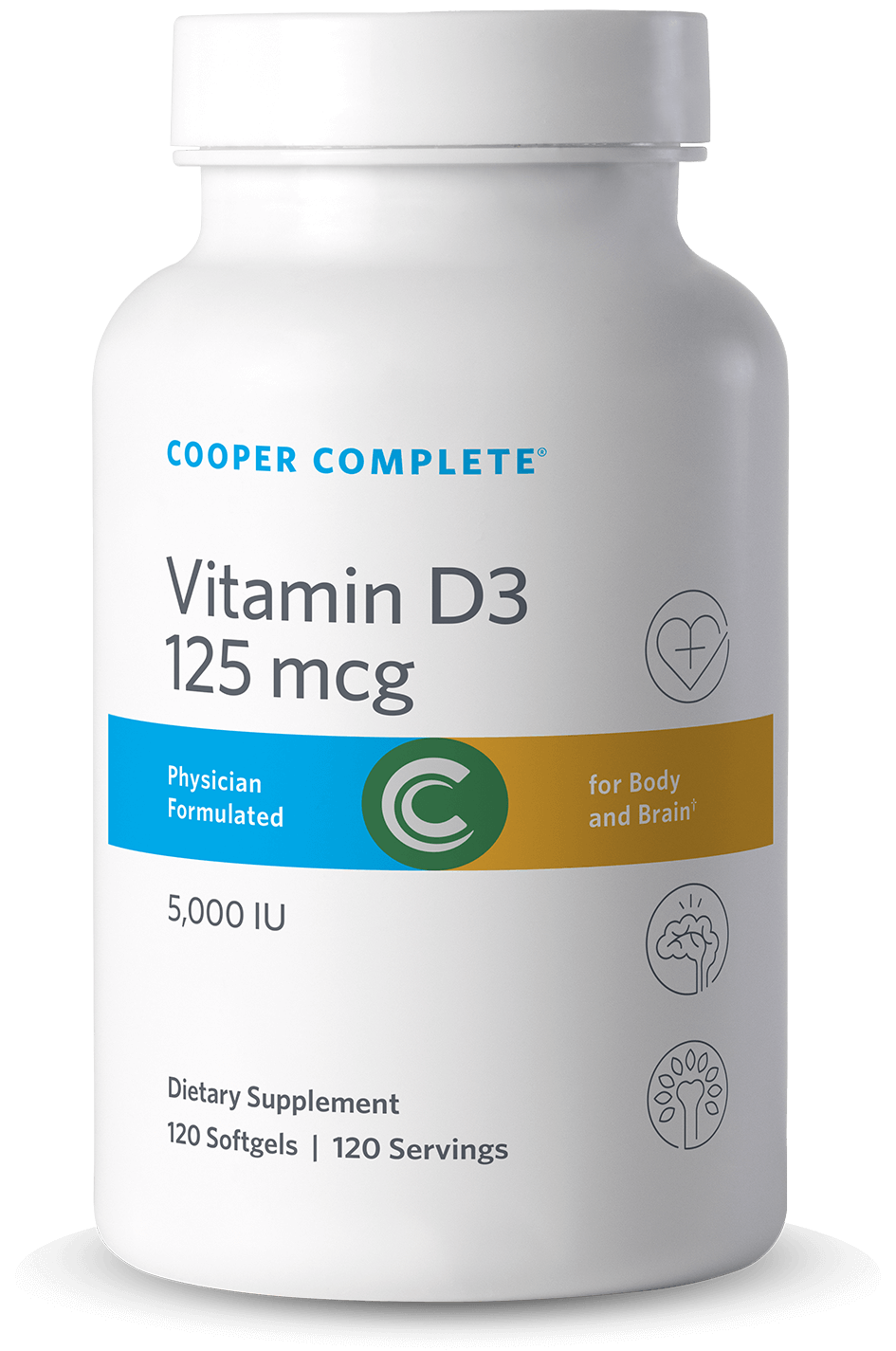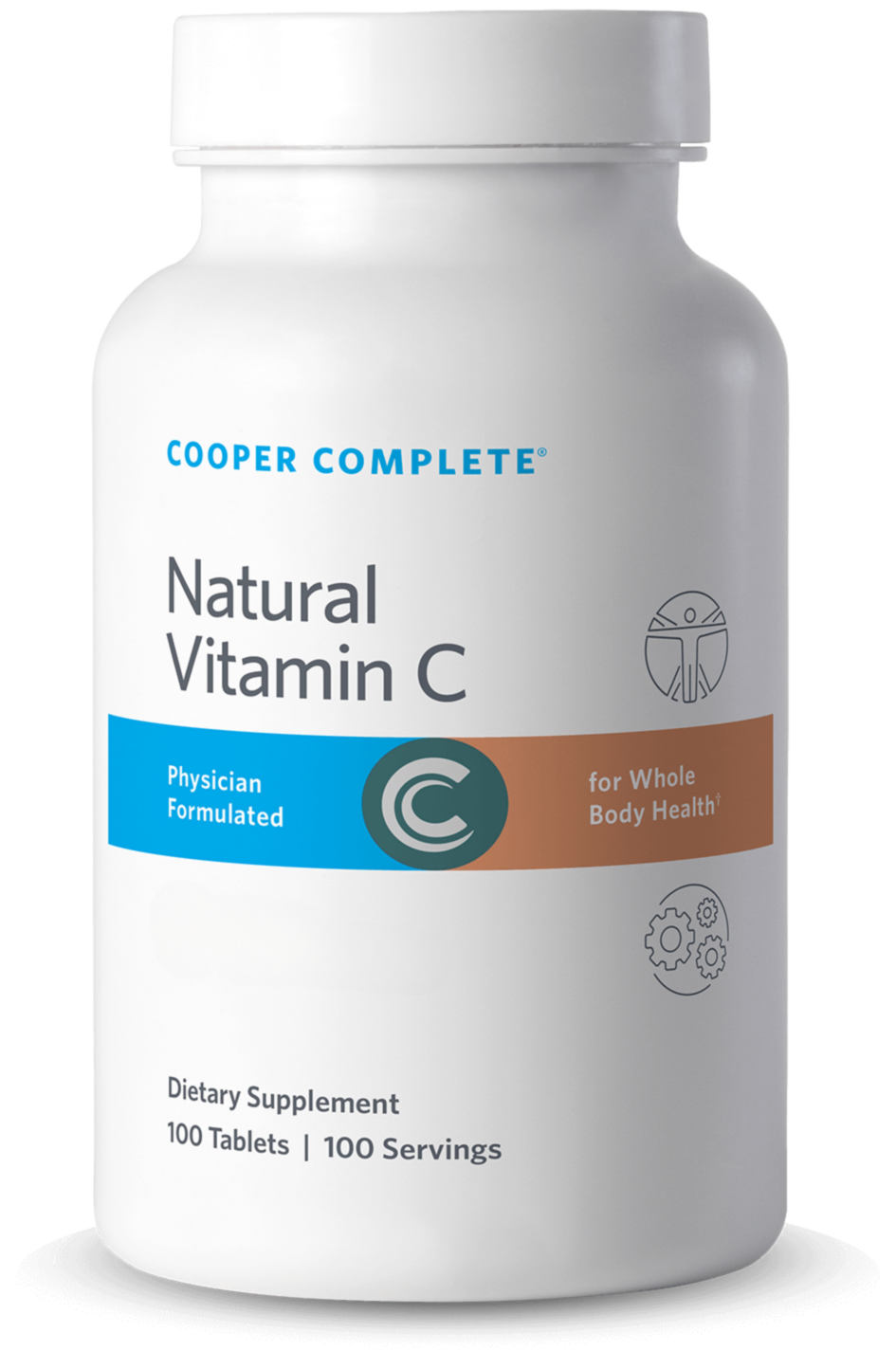How to Spot and Fix the 6 Most Common Vitamin Deficiencies in Your Diet

Top 6 Most Common Vitamin Deficiencies in the American Diet
While Americans may eat more frequently and indulge in larger portions than people in any other country, the American diet can also leave significant nutritional gaps. Many Americans regularly fall short of the recommended daily intake for several essential nutrients. These gaps can lead to nutritional deficiencies that may impact overall health and energy levels†.
According to the Dietary Guidelines for Americans, experts have identified several common vitamin deficiencies in the American diet, including iron, calcium, vitamin C, vitamin D, vitamin B12, and magnesium. Each of these nutrient deficiencies may cause symptoms that can often be addressed through improved nutrition, including a balanced diet and supplementation†. By recognizing the most common deficiencies and knowing how to address them, individuals can take proactive steps to improve their nutrition.

Iron Bisglycinate Supplement 29 mg
Iron Bisglycinate Supplement contains 29 mg of gentle and highly absorbable Ferrochel® (a patented chelated iron in the form of iron bisglycinate) intentionally designed to avoid gastric upset or constipation.
$16.98 Add to cartTable of Contents
- 1. Iron Deficiency – Who’s at Risk and How to Get More
- 2. Calcium Deficiency – Signs, Risks, and How to Support Bone Health
- 3. Vitamin D Deficiency – Sunshine Isn’t Always Enough
- 4. Vitamin C Deficiency – The Forgotten Essential Nutrient
- 5. Vitamin B12 Deficiency – A Hidden Issue in Older Adults
- 6. Magnesium Deficiency – Often Overlooked, but Critical
- How Popular Diets Can Contribute to Nutrient Deficiencies
- Why Do Vitamin Deficiencies in Diets Happen?
- Can Supplements Help Fill Nutritional Gaps?
- Final Thoughts
1. Iron Deficiency – Who’s at Risk and How to Get More
Who: Iron deficiency is the most prevalent deficiency of all vitamin deficiencies in diets and is especially common among women of childbearing age and in people who have a diet low in iron†.
Symptoms: The most common sign of low iron intake is extreme fatigue, accompanied by other symptoms such as dizziness, headaches, cold extremities (fingers and toes), and overall weakness. Excessive craving for and chewing of ice may also occur.
Solution: Iron is most easily consumed through lean meats, poultry, and seafood. Lentils, beans, and other legumes, as well as spinach and fortified cereals, are also sources of iron. However, if you are unable to include many of these iron-rich foods, consider supplementing your diet with Cooper Complete Iron Bisglycinate.
2. Calcium Deficiency – Signs, Risks, and How to Support Bone Health†
Who: Among the most common vitamin deficiencies in diets, calcium deficiency often affects teenagers, older adults, and individuals who follow vegan or dairy-free diets.
Symptoms: Over time, a lack of calcium in one’s diet can lead to weak bones, fractures, and even arrhythmia†.
Solution: Incorporating dairy products, such as milk, yogurt, and cheese, as well as calcium-fortified foods like tofu and other soy products, orange juice, and almond and oat milk into your diet can help build stronger, healthier bones†. Cooper Complete Calcium Citrate supplement is a helpful option when diet alone doesn’t supply enough calcium.

Vitamin D3 125 mcg (5000 IU) Supplement
Many individuals don't get enough vitamin D from sunlight or through diet. Vitamin D3 form of Vitamin D Supplement for better absorption.†
$26.98 Add to cart3. Vitamin D Deficiency – Sunshine Isn’t Always Enough
Who: Vitamin D is another widespread example of vitamin deficiencies in diet, frequently seen in older adults, those with darker skin tones, obese individuals, or people with Crohn’s or celiac disease, who are often vitamin D deficient.
Symptoms: Vitamin D deficiency can manifest as bone pain, muscle weakness, or an increased occurrence of infections†. If the deficiency is left untreated, symptoms may progress, eventually affecting the bone structure†.
Solution: Salmon, trout, swordfish, sturgeon, whitefish, mackerel, and tuna are rich in vitamin D. Dairy, almond milk, soy milk, rice milk, orange juice, and ready-to-eat cereals are often vitamin D-fortified. However, even by consuming these foods, you may still not reach adequate vitamin D levels through diet, sun exposure, or even most multivitamins†. Taking Cooper Complete Vitamin D3 supplements can help support strong, healthy bones and a robust immune system†.
4. Vitamin C Deficiency – The Forgotten Essential Nutrient
Who: Individuals who struggle to include more fruits and vegetables in their diet are the most at risk for vitamin C deficiency. Individuals with hyperthyroidism or diseases of malabsorption (especially diseases with diarrhea), or who are iron-deficient, or who smoke, may also be at higher risk of vitamin C deficiency.

Natural Vitamin C Supplement
Natural Vitamin C Supplement contains 850 mg of vitamin C (as calcium and magnesium ascorbates), plus citrus bioflavonoids to support cells, immune health, and healing.†
$29.98 Add to cartSymptoms: This deficiency can manifest through various symptoms, including bleeding gums, easy bruising, and slow wound healing.
Solution: Incorporate more citrus fruits and vegetables into your diet, such as oranges, pineapples, lemons, limes, guava, papaya, kiwi, and strawberries, along with vegetables like bell peppers, broccoli, and potatoes, which are rich sources of vitamin C.
5. Vitamin B12 Deficiency – A Hidden Issue in Older Adults
Who: Among the lesser-known vitamin deficiencies in diet, vitamin B12 deficiency is especially common in adults over 50, people taking proton pump inhibitors (PPIs), Metformin, or other medications that can impair absorption, and vegans.
Symptoms: Signs include memory problems, fatigue, irritability, difficulty concentrating, or numbness and tingling in the hands and feet†.
Solution: Consume meat, fish, eggs, and dairy, as B12 is found naturally in animal-based foods. Those with limited intake or absorption may benefit from supplementing with Cooper Complete Vitamin B12 Methylcobalamin or a multivitamin that includes methylated B12†.
6. Magnesium Deficiency – Often Overlooked, but Critical
Who: Magnesium is one of the most under-recognized nutrient deficiencies in diets. It often affects older adults, athletes, and people with digestive disorders such as Crohn’s or celiac disease.
Symptoms: Deficiency symptoms can include fatigue, poor sleep quality, muscle cramps, irritability, and irregular heartbeat†.
Solution: Magnesium is present in all kinds of foods, including nuts, seeds, whole grains, and leafy greens. If dietary intake is low, magnesium supplements or a multivitamin can help support healthy levels†.
How Popular Diets Can Contribute to Nutrient Deficiencies
Restrictive or specialized eating patterns can increase the likelihood of certain nutrient shortfalls. While these diets may have benefits, it’s important to understand what may be missing and how to adjust:
- Gluten-Free Diets: May lack fiber, iron, vitamin D, B12, magnesium, and calcium, especially if based on refined gluten-free starches.
- Ketogenic Diets: Restricting grains, milk, fruit, and legumes can lead to a reduction in the intake of vitamin D, calcium, and electrolytes.
- Vegan Diets: Common gaps include iron, calcium, vitamin D, B12, and zinc. Fortified foods and targeted supplementation may be needed.
Knowing how your eating pattern affects nutrition makes it easier to spot gaps and take proactive steps to address them.
Why Do Vitamin Deficiencies in Diets Happen?
Several factors contribute to nutritional shortfalls in the modern American diet. These include:
- Frequent consumption of ultra-processed foods – packaged snacks and fast foods are often high in calories, fat and sodium but low in essential vitamins and minerals.
- Diets lacking nutrient-dense whole foods – meals that center on refined grains, added sugars, and unhealthy fats often leave little room for fruits, vegetables, and lean proteins.
- Skipping meals or inconsistent eating habits – irregular meal patterns can make it more difficult to meet daily nutritional needs.
- Restrictive eating plans – diets that eliminate entire food groups (such as meat or dairy) may limit key nutrients like calcium, iron, and the B vitamins.
- Digestive conditions that impair absorption – medical conditions like Crohn’s, IBS or celiac disease can reduce the body’s ability to absorb nutrients effectively.
- Long-term use of certain medications – medications such as proton pump inhibitors (PPIs), antacids, or Metformin can reduce the absorption of vitamins and minerals over time.
- Increased nutrient needs due to life stage or health status – older adults, individuals with chronic stress, or those recovering from illness may need increased nutritional support.
Even with the best intentions, it’s easy for busy individuals to fall short on daily nutrients, particularly iron, calcium, vitamin C, and vitamin D. These common signs of possible deficiencies are not diagnostic of a deficiency. It’s essential to consult with your physician or health care provider if you’re not feeling well.
Can Supplements Help Fill Nutritional Gaps?
A food-first approach is always optimal, but even well-balanced diets sometimes leave gaps. For nutrients like iron or vitamin D, where absorption or intake can be difficult, supplements can help make daily recommendations achievable†.
Cooper Complete supplements are formulated with high-quality, bioavailable ingredients and are designed to help support optimal nutrition†. Products such as Iron Bisglycinate, Calcium Citrate, Vitamin D3, Vitamin C, Vitamin B12 and Magnesium can provide targeted support where dietary intake may be insufficient†.
A registered dietitian nutritionist can help you optimize your existing diet.
Final Thoughts: Addressing the Top 6 Vitamin Deficiencies in Diet
Even with a balanced diet, it’s common to fall short on essential nutrients like iron, calcium, vitamin D, vitamin C, B12, and magnesium. By recognizing the symptoms and understanding your personal risk, you can take meaningful steps to improve your nutrition and support long-term health†. Your physician or health care provider can help you determine which vitamins and supplements are appropriate for your specific circumstances.
Shop Supplements for Vitamin Deficiencies
Find Out What You’re Missing – Take the Nutrition Quiz
About the Author: Jill Turner is the President of Cooper Complete® Nutritional Supplements, where she oversees product development and customer experience. She enjoys writing about vitamins, supplements, and preventive health to help consumers make informed, science-backed decisions.
Sources
- Office of Disease Prevention and Health Promotion, Dietary Guidelines for Americans
- Healthline, 7 Common Nutrient Deficiencies (Symptoms & Foods)
- ScienceDirect, Vitamin Deficiency Overview
- Mayo Clinic, Vitamin Deficiency Anemia – Symptoms and Causes
- National Institutes of Health (NIH) Office of Dietary Supplements, Iron Fact Sheet for Health Professionals
- NIH Office of Dietary Supplements, Calcium Fact Sheet for Health Professionals
- NIH Office of Dietary Supplements, Vitamin D Fact Sheet for Health Professionals
- NIH Office of Dietary Supplements, Vitamin C Fact Sheet for Health Professionals
- NIH Office of Dietary Supplements, Vitamin B12 Fact Sheet for Health Professionals
- NIH Office of Dietary Supplements, Magnesium Fact Sheet for Health Professionals
- National Library of Medicine, PubMed Central, Prevalence of Micronutrient Deficiency in Popular Diets (Systematic Review)
